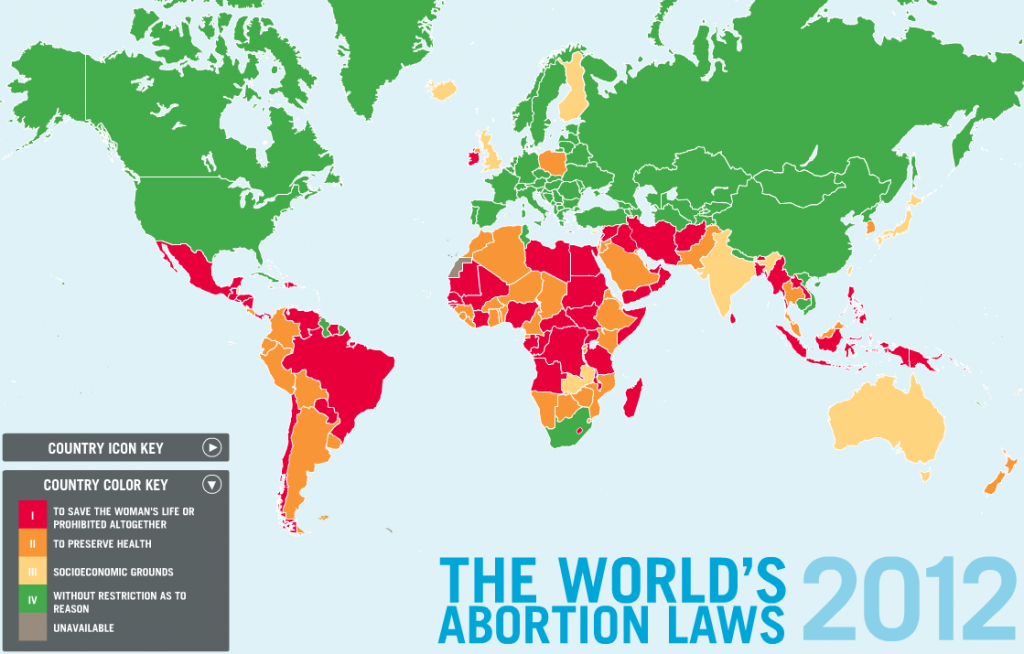Does Access to Safe Abortion Depend on Law?
Recently, we posted this map on our Facebook page:

This map highlights the status of abortion laws across the world.
Red zones have extremely stringent laws, orange and yellow zones are relatively liberal, and green zones have very liberal laws on abortion.
But here’s what Lilly Miao from the Netherlands pointed out on our Facebook Page:
I think this map misses to represent the discrepancy existing between the legal rights to have an abortion and the concrete access to abortion services. For example in Italy, it is legal to have an abortion since 1978, but in many regions of the country it is almost impossible to have an abortion due to massive presence of conscientious objectors in the public and private hospitals. It would be nice to create another layer/color to represent this issue on the map.
We will publish a modified map soon. In the meantime, we cannot stress enough on how right Ms. Miao is. Even in the green zones, access to abortions is restricted because of a dearth of affordable services, abortion stigma, and myths about safe abortions. Religious fundamentalism, patriarchy, unsupportive medical professionals and conservative politics threaten liberal laws and access to safe, medical services, both in developed and developing regions.
In Asia, Turkey’s government is keen on stepping back, and curtailing the rights of its women. In India, gender discrimination is rearing its head in the form of sex-selection, and threating access to medical abortions, and second semester abortions. In Pakistan and Malaysia cultural attitudes block access, and in Indonesia, legal loopholes restrict the access of several women.
The lack of access can be overcome by giving women channels to voice their needs. One such channel is the abortion hotline. In the past, ASAP has worked with its partner organizations to create hotlines for misoprostol (pill used for medical abortion. Refer our website on accurate information on how to use it) in Pakistan. This effort has been duplicated in Indonesia and recently in Thailand.
It’s also important to encourage task shifting. The ASAP team is in Nepal right now, conducting a workshop for mid-level providers from Nepal, India, Pakistan and Bangladesh. Given the dearth of qualified and trained doctors in all these countries, task shifting is key to ensuring access to health services, including safe abortions, especially for rural and poor women. Training these health care providers, and empowering them to advocate for an increased role in providing safe abortions, will improve the access to safe abortions. Nepal has already pioneered this law, and mid-level providers in Nepal are providing both medical and surgical abortion services to women.
Yesterday our participants discussed the access to abortions with Sonali Regmi from the Center of Reproductive Rights, Nepal. While Sonali stressed on the need to incorporate a rights-based approach into hospital procedures and laws, she also pointed out that safe abortions are not technically available in a country until women from all walks of life can access affordable, quality services.
We can’t agree more!






